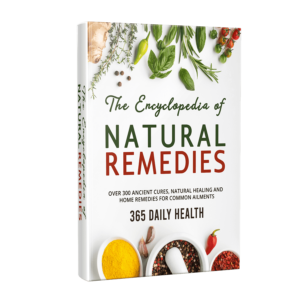Introduction
Heartburn, medically known as acid reflux, is a common condition characterized by an uncomfortable burning sensation in the chest, often after eating. It occurs when stomach acid flows back up into the food pipe, or esophagus, irritating its lining. This article is about home remedies for heartburn.
Note: This content is for informational purposes only and should not be considered medical advice. As always, consult with your healthcare provider before making any changes to your diet or taking/using any herbal remedy.
Common causes of heartburn include certain foods and drinks, such as spicy foods, onions, citrus products, tomato products, chocolate, alcohol, coffee or other caffeinated beverages. Additionally, lifestyle factors like smoking, stress, obesity, and certain medications may trigger heartburn. It’s also more likely to occur in individuals who have conditions like gastroesophageal reflux disease (GERD) or hiatal hernia.
Common Home Remedies for Heartburn
This information is not meant as medical advice. Please check with your medical provider before making changes in your diet or taking any over-the-counter or herbal preparations.
A. Drinking Water
Water can often act as a simple yet effective home remedy for heartburn. The basic premise behind this is that water has a neutral pH level of 7, which can help neutralize the acid in the stomach, thereby reducing the discomfort associated with heartburn. When you experience symptoms, drinking a full glass of water can dilute and flush out the excess acid present in your esophagus. However, it’s important to remember that while water can provide temporary relief, it doesn’t prevent the stomach from producing more acid in response.##
B. Chewing Gum
Chewing gum is another simple and readily available home remedy for heartburn. The act of chewing stimulates the production of saliva, a natural antacid. This increased flow of saliva helps dilute and clear the acid from unwanted areas, thereby reducing the symptoms of heartburn. Additionally, the repetitive act of chewing encourages frequent swallowing, which can push the harmful acids back out of the esophagus and into the stomach where they belong. Opt for sugar-free gums, especially after meals, to prevent further aggravation of heartburn and to maintain oral hygiene.
C. Baking Soda
Baking soda, or sodium bicarbonate, has an alkaline pH, making it a sought-after home remedy for heartburn. It helps in neutralizing the stomach acid due to its basic nature. When baking soda is consumed, it reacts with stomach acid to produce salt, water, and carbon dioxide, which are harmless. This causes a neutralizing effect, reducing the burning sensation that characterizes heartburn. However, it’s important to use this remedy sparingly, as baking soda is high in sodium and could lead to side effects like nausea and swelling. Always discuss with a healthcare provider before starting any home remedy.
Herbal Remedies for Heartburn
In addition to the aforementioned home remedies, there are several herbal remedies known for their potential in treating heartburn. These include:
Ginger
Ginger has been found to have anti-inflammatory properties and is commonly used to soothe digestive issues such as heartburn. It can be consumed fresh, in tea form, or as a supplement. Ginger has also been shown to help with nausea, making it a beneficial option for those who experience both symptoms.
https://pubmed.ncbi.nlm.nih.gov/26884528/
Chamomile
Chamomile is another popular herbal remedy for heartburn due to its ability to reduce inflammation and relax muscles in the digestive tract. It can be consumed as a tea or taken in capsule form.
https://pubmed.ncbi.nlm.nih.gov/27644672/
Slippery Elm
Slippery elm has been used for centuries to treat various digestive issues, including heartburn. It is believed to coat the lining of the esophagus and stomach, providing a protective barrier against stomach acid. Slippery elm can be consumed in powder or capsule form.
https://pubmed.ncbi.nlm.nih.gov/32151878/
Licorice
Licorice root has also been found to have anti-inflammatory properties and may help reduce symptoms of heartburn. However, it’s important to note that excessive consumption of licorice may lead to high blood pressure and low potassium levels, so it should be used cautiously.
https://pubmed.ncbi.nlm.nih.gov/11552894/
Dietary Changes to Alleviate Heartburn
One of the most effective ways to manage heartburn is through implementing dietary changes. The following strategies can significantly lessen the frequency and intensity of heartburn episodes:
A. Reduction in Spicy, Fatty, or Acidic Foods
Consuming spicy, fatty, or highly acidic foods can exacerbate heartburn symptoms as they stimulate acid production in the stomach. Reducing intake of these types of foods can help manage heartburn symptoms.
B. Eating Smaller, More Frequent Meals
Large meals can put pressure on the lower esophageal sphincter (LES), the muscle that prevents stomach acid from refluxing into the esophagus. Instead of three large meals, try eating smaller meals more frequently to lessen the pressure on the LES and reduce heartburn occurrences.
C. Avoiding Food and Drink That Trigger Heartburn
Each individual may have specific trigger foods or drinks that worsen their heartburn symptoms. Common offenders include alcohol, caffeine, carbonated beverages, chocolate, and certain fruits and vegetables. Identifying and avoiding these triggers can significantly improve heartburn symptoms.
D. Modifying Meal Times
Eating close to bedtime can increase the likelihood of experiencing heartburn symptoms, as lying down after eating allows stomach acid to more easily reflux into the esophagus. It’s best to avoid eating at least two to three hours before lying down for bed.
Other Strategies for Managing Heartburn
Apart from dietary changes, other lifestyle modifications can help alleviate heartburn symptoms:
A. Elevating the Head During Sleep
Using an extra pillow or elevating the head of your bed by a few inches can help prevent stomach acid from refluxing into the esophagus while you sleep.
B. Quitting Smoking
Smoking has been linked to increased acid production and relaxation of the LES, making it easier for stomach acid to reflux into the esophagus. Quitting smoking can not only improve heartburn symptoms but also have numerous other health benefits.
C. Managing Stress
Stress has been shown to worsen heartburn symptoms in some individuals. Finding healthy ways to manage stress, such as exercise or meditation, can help reduce heartburn occurrences.
D. Taking Over-the-Counter Medications
There are several over-the-counter medications available that can provide relief from occasional heartburn. These include antacids, which neutralize stomach acid, and H2 blockers and proton pump inhibitors (PPIs), which decrease the production of stomach acid. It’s important to speak with your healthcare provider before starting any new medication.
When to Seek Medical Help
Despite the effectiveness of the aforementioned strategies and over-the-counter medications, there are times when professional medical help should be sought.
A. Persistence of Symptoms Despite Home Remedies
If heartburn symptoms persist despite trying various home remedies and lifestyle modifications, it warrants a visit to the healthcare provider. Persistent heartburn might indicate a more severe underlying condition, such as gastroesophageal reflux disease (GERD), and may require stronger prescription medications or other treatments.
B. Possible Signs of More Serious Conditions
Certain symptoms accompanying heartburn could be indicative of more serious conditions. These include severe chest pain, difficulty swallowing, persistent nausea or vomiting, weight loss due to poor appetite or difficulty eating, and black or bloody stools. These symptoms necessitate immediate medical attention as they could signal conditions like esophageal cancer or peptic ulcers.
Conclusion
In conclusion, managing heartburn symptoms can often be successfully achieved through home remedies and lifestyle modifications. Quitting smoking can reduce acid production and LES relaxation, while effective stress management, possibly through exercise or meditation, can alleviate heartburn occurrences. Over-the-counter medications, such as antacids, H2 blockers, and PPIs, can offer relief from occasional heartburn. However, persistent symptoms despite these efforts should prompt medical consultation as it may indicate a more severe condition like GERD.
The importance of a balanced diet and a healthy lifestyle cannot be overstated in preventing heartburn. Consuming meals that are low in fat and acid, and maintaining a regular meal schedule can significantly mitigate heartburn symptoms. Likewise, regular physical activity can help maintain a healthy weight, which is beneficial in preventing heartburn. Remember, it is always best to consult your healthcare provider before starting any new medication or regimen.
For more herbal remedies click here.


